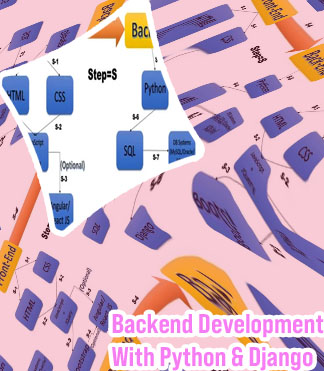Python as backend
What is Backend Development?
Django is a free, open-source, full-stack web application framework written in Python. In simple words, Django is a set of ready-made components that help you rapidly build websites with pragmatic and clean architectures. When crafting websites, developers frequently need the same components for tasks like authenticating users, uploading files, and implementing CMS systems. So as not to reinvent the wheel each time you make a new site, Django provides ready-made solutions. Python back end web development Python: Python is a high level interpreted and object-oriented programming language that enormous library support and is used for developing standalone programs and scripting algorithms for various domains. It was created by Guido Van Rossum and released its first version in the year 1990.
Website with python backend
Ensure scalability, reliability, and performance of backend systems 4.13 Web application security Ruby and Python work to achieve the same goals in web development, but take different paths in the way. Ruby is designed to be infinitely flexible and empowering for programmers. Pythons primary goal is to make everything visible to the programmer. This sacrifices some of the elegance that Ruby has but gives Python a big advantage when it comes to learn how to code and to debug problems efficiently.

Nico Teringl, MSc
Django takes security seriously and helps developers avoid many common security mistakes. Backend Web Development with Python - Full Course Selecting a development platform is significant steps in the app development phase. Node JS vs Python is certainly a highly discussed topic nowadays. Let’s see where we can use Node JS and when to use python.
Python for web backend
Flask is a Python framework accessible under the BSD license inspired by the Sinatra Ruby framework. Flask relies upon the Werkzeug WSGI toolbox and Jinja2 template. The primary purpose is to help develop a robust web application base. Did you find this article valuable? If you have studied or worked at UAlberta before, you have a Campus Computing ID (CCID)

